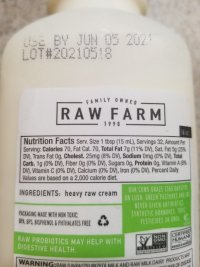somuch4food
Member
- Joined
- Aug 23, 2018
- Messages
- 1,281
I'm not really well versed in homeopathy, but many people swear by it and the amount of active ingredients in homeopathy are even less concentrated than what you get from fortification. You can react to small doses.you don't seem to get it, the amount of vitamin d and thus the solvent is so miniscule you have absolutely no chance of having any effect from it. You are simply reacting to sub-par milk with god knows what fillers that are entirely unrealted ot the fortification.

